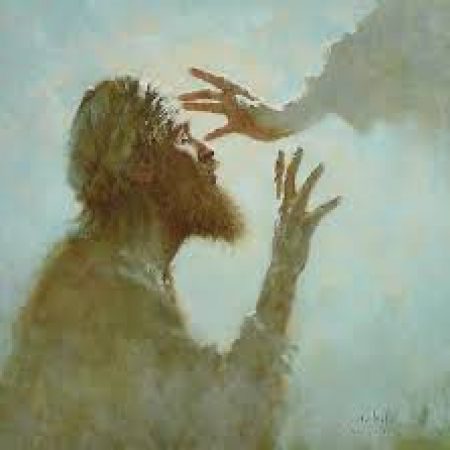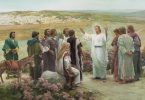John the Baptist heard of the work of Jesus of Nazareth, and his curiosity inspired him the send two disciples to find out if Jesus was the anointed one written about and prophesied in the Holy Scriptures. Jesus answered and said to them, “Go and tell John the things which you hear and see: The blind see and the lame walk; the lepers are cleansed and the deaf hear; the dead are raised up and the poor have the gospel preached to them. And blessed is he who is not offended because of Me” (Matthew 11: 4-6). In Jesus’s time many were offended because of His work and his teachings, so do not be surprised if Christians today are vilified for their beliefs. Not all who physically saw Jesus were healed, whether lame or mute. Nor were people who were without sight healed of blindness when Jesus was in their presence. The condition for healing is faith, an inner disposition of mind and heart and willingness to put trust in the hope of something better. It is also an inner openness to truly know and discover the truth about life and God. The inner dimension of the human person consists of many hidden spiritual conditions only known to God and others if confessed and shared. One universal human trait is the degree to which one desires truth, whether about themselves or any other facets of life. The will to know the truth and the decision to seek the truth is a powerful force that opens up various blessings. One clear consequence in seeking truth is the ability to see, not just physical dimensions of daily life but the inner workings and hidden mechanics of the events that unfold or will unfold in our surroundings. In Scripture this is described as “in your light we see light” (Psalm 36: 9). Jumping into the Kingdom of God with trust that He will guide us, then permits us to see what we were never able to see before. The immediate consequence is a weltanschauung shift that orients us to sing to God: “They feast on the abundance of your house; you give them drink from your river of delights” (Psalm 36:8).






